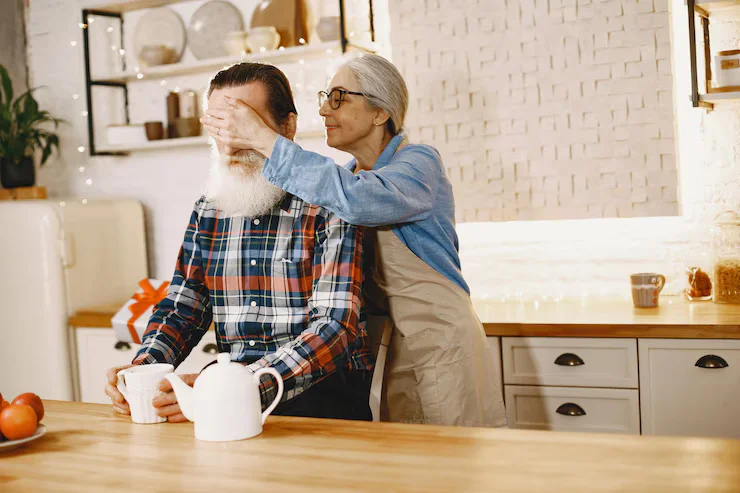Growing older often comes with unique emotional challenges that can affect physical health and mental well-being. Among these, loneliness remains one of the most significant yet overlooked issues faced by seniors or Companion Care. When family members move away, social circles shrink, or mobility becomes limited, many elderly individuals experience long stretches of solitude that impact their happiness and quality of life.
Companion care offers a practical solution to this pressing concern. Designed to provide emotional support and human connection, it helps aging adults feel seen, heard, and valued. To learn more about effective care strategies of professional in-home care providers that address isolation, click here. This article explores how companion care helps reduce loneliness, enhances health, and improves overall life satisfaction for seniors.
Why Emotional Connection Matters in Later Years
Human connection is essential to a meaningful life at any age, but it becomes especially important during the senior years. Isolation has been linked to depression, memory loss, and even weakened immunity. Many older adults live alone, and without frequent interaction, they may withdraw further.
A caring companion can help create emotional bonds that replace feelings of emptiness with warmth and reassurance. These relationships offer not just a company but also a sense of belonging that becomes a source of strength and stability. As older individuals form meaningful connections, they regain a sense of purpose that fuels motivation and confidence.
Daily Interaction Promotes Cognitive Health
Maintaining mental agility requires regular mental stimulation and emotional interaction. Talking with someone, sharing stories, or playing a game can engage the mind in ways that delay cognitive decline. Seniors who participate in regular conversations tend to have better memory retention and sharper thinking skills.
Social engagement has been associated with a reduced risk of conditions such as dementia and Alzheimer’s disease. Companion caregivers often introduce reading, card games, or walks that combine light physical activity with mental stimulation. These daily routines build a rhythm that supports both mental and emotional stability.
Safe Mobility with Friendly Support
For seniors, going outside or even walking around the house can feel intimidating without help. A companion can provide physical support while also offering encouragement and reassurance. This allows aging adults to remain active without fear of falling or becoming disoriented. Simple activities like grocery shopping, visiting the park, or attending local events become much easier when someone is there to assist.
Over time, these shared routines build trust and foster emotional connection. For seniors hesitant to venture out, consistent companionship can be the first step toward rediscovering independence. With the support of a companion, seniors regain confidence in their mobility and enjoy more opportunities for social engagement and personal growth.
Companionship Builds Routine and Structure
Loneliness often leads to disorganized days filled with inactivity and monotony. Companion care introduces gentle structure by encouraging regular schedules and healthy habits. Shared meals, walks, hobbies, or just talking at the same time each day can create stability. Routine fosters a sense of security that is essential for emotional well-being.
When seniors know someone is coming to see them, they feel cared for and valued. The act of preparing for interaction—dressing up, tidying the home, setting aside time—adds positive anticipation and direction to each day. This structured approach can also help reduce feelings of aimlessness and foster a greater sense of control over their lives.
Helping with Practical Tasks Enhances Dignity
Though companionship is often emotional, it also extends to light housekeeping and daily chores. Small tasks such as meal preparation, folding laundry, or organizing belongings can be daunting when done alone. A helping hand turns these activities into shared experiences rather than burdens. Maintaining a clean and organized environment also boosts self-respect.
When older individuals see their living space maintained and their needs addressed, it fosters a renewed sense of pride. By assisting with daily activities, companion caregivers support both the physical space and emotional dignity of seniors. This hands-on help also allows seniors to feel more capable and self-sufficient, preserving their independence and dignity.
Reducing Anxiety and Emotional Stress
Loneliness often brings with it feelings of fear, sadness, or helplessness. Not knowing who to turn to during difficult moments can make these emotions even more intense. A companion becomes a dependable presence who listens without judgment and offers calm reassurance.
Sharing thoughts, expressing concerns, or simply chatting about the day can be enough to ease mental pressure. Having someone available to notice mood changes or offer comforting words plays a vital role in stress reduction. These conversations don’t need to be deep; even small talk helps maintain emotional balance. With consistent support, seniors can feel less overwhelmed and more at ease in managing the ups and downs of daily life.
Still curious? Check out these powerful guides that complement what you’ve just read.
Opportunities for Shared Enjoyment
While practical care is important, so is joy. Seniors deserve to experience laughter, entertainment, and meaningful moments. Companion caregivers often find creative ways to inject fun into daily life. Here are some activities often enjoyed together:
- Watching favorite shows or classic movies
- Playing card games or completing puzzles
- Cooking simple meals or baking treats
- Going for walks or attending local events
- Listening to music or sharing photo albums
These shared experiences add color and variety to everyday life. When seniors participate in enjoyable moments with someone they trust, it improves their emotional outlook and strengthens the bond.
Families Feel Reassured and Connected
Companion care also benefits families. Many relatives worry about aging loved ones, but they cannot always be present. Knowing that someone dependable is there provides peace of mind. Companions often communicate updates, observe changes in behavior, and serve as an additional layer of support.
This reassurance helps families maintain better relationships with their elderly members. Instead of feeling burdened or guilty, relatives can engage in more relaxed and joyful interactions during visits. It also allows families to focus on quality time, knowing their loved one’s needs are being met in a caring and consistent way.
Companion care is more than a helpful service—it is a bridge that restores human connection in seniors’ lives. It offers reassurance, stability, and joy to those who might otherwise spend long hours alone. With a caring presence by their side, older adults experience a renewed sense of purpose and the comfort of knowing they are not alone.
Don’t miss our newest articles—they’re all waiting at 2A Magazine.







